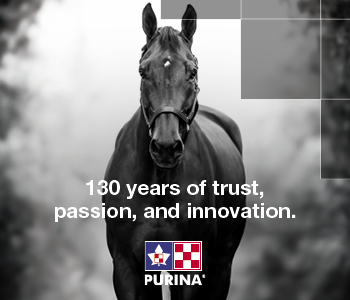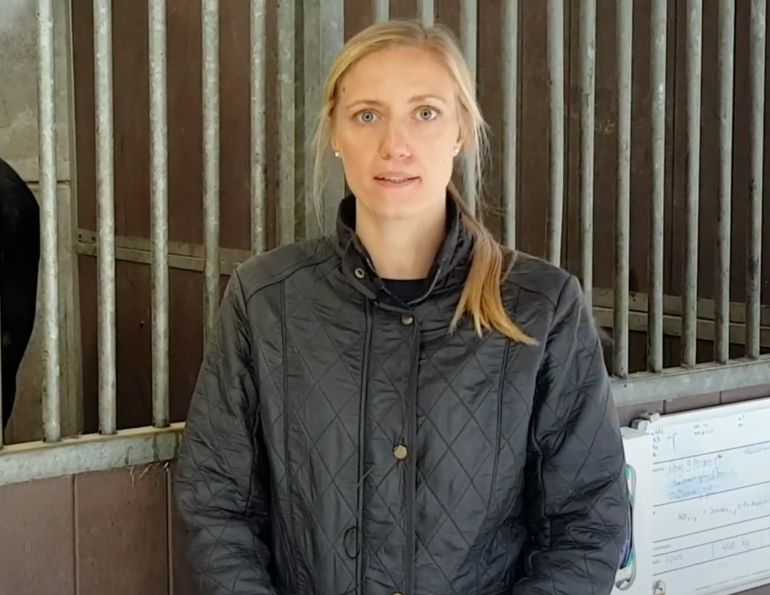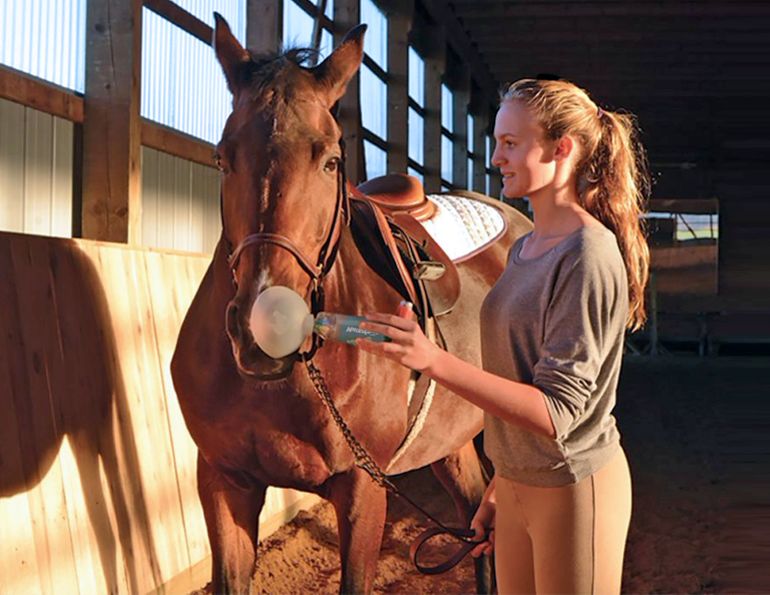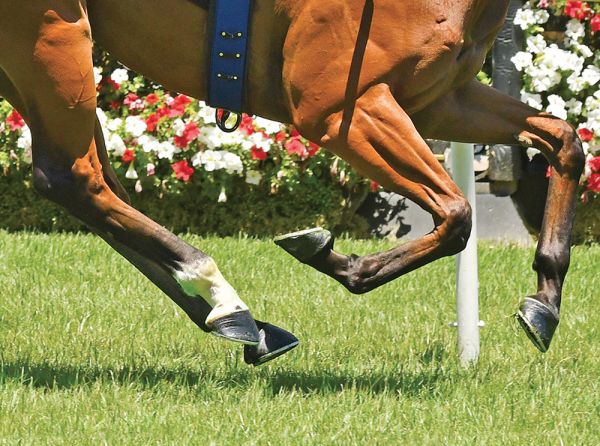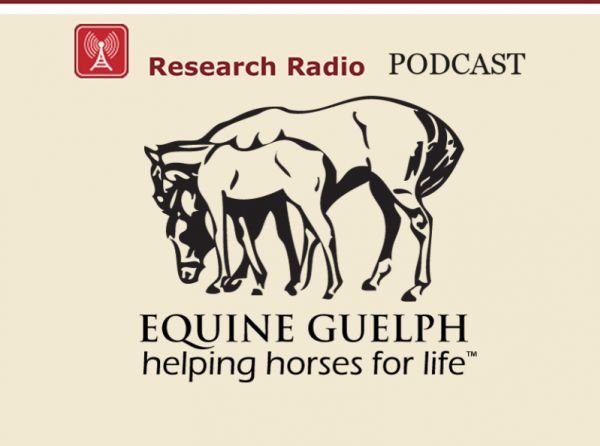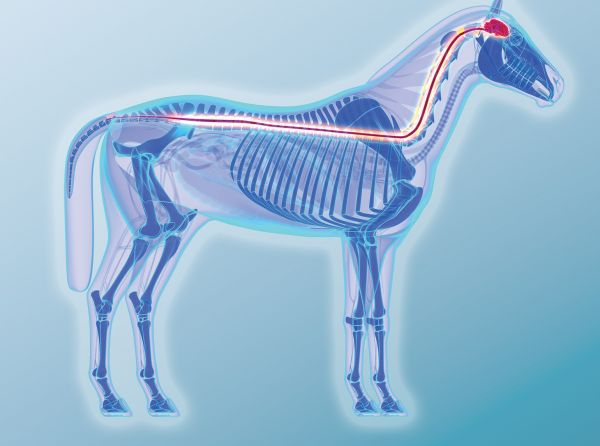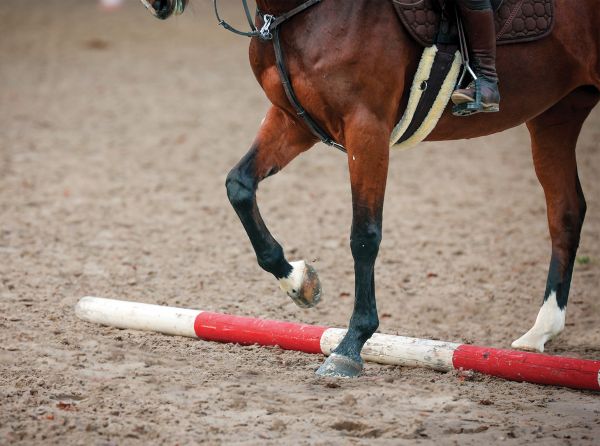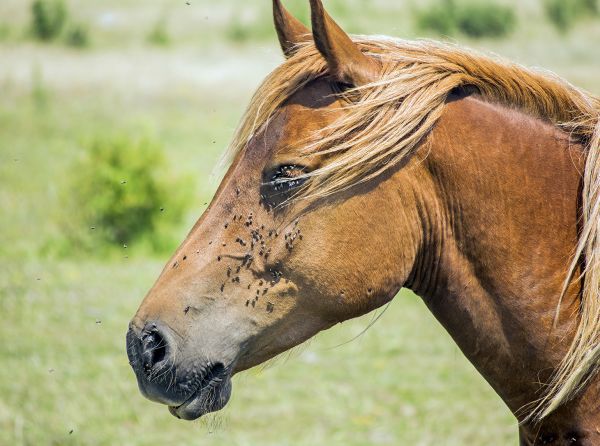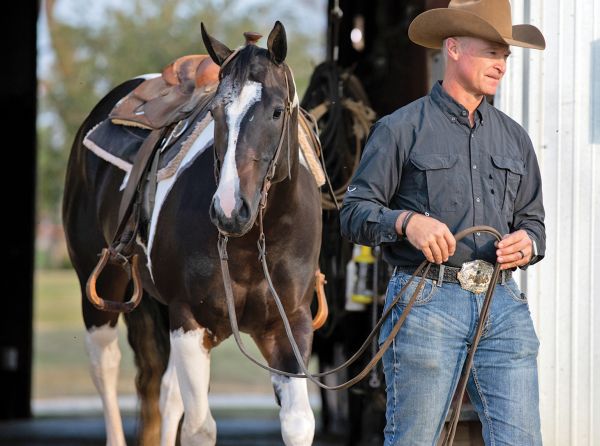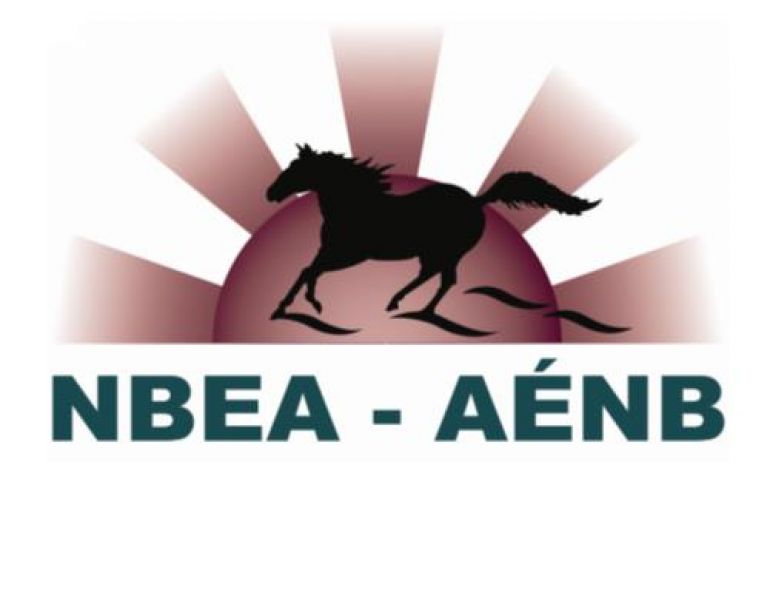The Gift of Life
By Margaret Evans
Blood transfusions save lives and almost everyone knows the value of donating to the blood bank. But how many people think their animals could be blood donors too?
Dogs and cats can both be donors and there are a number of canine blood banks across Canada, many centered at animal emergency clinics and hospitals or veterinary colleges. At the University of Veterinary Medicine in Vienna, Italy, a blood bank for dogs has been in operation for a decade.
Dogs with a minimum weight of 25 kg can donate blood and give up to 450 millilitres after a health check. Depending on their size, cats can also give blood, about 50 millilitres.
But what about horses?
Equine surgery can be traumatic. Maybe your horse has been injured in the field or while being ridden, has emergency colic, needs a sinus operation, has problems with clotting disorders, or is profusely bleeding because of a guttural pouch infection. When your horse is facing treatment and might need a blood transfusion, some well laid plans will be in order.
“Horses are different from humans, dogs and cats,” said Dr. David Paton with Paton Martin Veterinary Services Ltd., in Langley, B.C. “Horses have seven major blood types and there are a whole bunch of subtypes.”
Humans have just three major blood types – A, B, and O. However the horse’s blood groups include A, C, D, K, P, Q and U. Then each group can have a variety of cell membrane proteins referred to as factors - a, b, c, d, e, f, or g. So a blood type is defined as both a group and a factor (Qa, Pd, etc.). Doing the math, a horse’s blood profile can be any one of over 400,000 combinations. As a result, it is almost impossible for a veterinarian to source matched blood from a donor horse. And as equine blood is not easily storable, it is not bankable.
“Matched blood is not easy to get,” said Paton. “In addition, horse blood does not store very well, no more than 30 days. It’s not often when a horse needs a transfusion but, when it does, a horse will need at least a gallon (3.78 litres) of blood.”
No one actually knows why equine blood doesn’t store well. But the saving grace is that horses do not normally have a reaction to unmatched blood on the first transfusion. However, if further transfusions are needed, sourcing matched blood may become necessary as, by that point, a horse will have developed antibodies in response to the first transfused blood it received. But sourcing matched blood is problematic since sampling for a cross-match from multiple horses is time consuming, expensive, and labour intensive when time itself is of the essence.
In a study done at the University of Pennsylvania, School of Veterinary Medicine’s New Bolton Center, scientists conducted a study to see whether blood samples stored for a month gave accurate results when used for cross-matching tests. They were really surprised when the results indicated that horse blood became more reactive the longer it sat in storage, even just for 30 days. It had a tendency to give false positive results. The research was published in the Journal of Veterinary Internal Medicine.
In another study, the scientists examined the lifespan of red blood cells in transfused blood. Using young racehorses from a Thoroughbred rescue organization where they were resting from lameness problems, the researchers selected ten pairs of horses, nine with incompatible blood and one pair with a blood type that matched well. Each horse had a transfusion of a gallon of fresh whole blood labelled with biotin, a red blood cell marker that would identify which cells were the transfused blood cells compared to the horse’s natural red blood cells.
Results showed that, with well-matched blood, the half-life of a red blood cell was 33.5 days compared to an incompatible red blood cell that had a half-life of only 4.7 days. Horses that had transfusions with incompatible blood were possibly more likely to develop fevers but none of the reactions were severe or life-threatening.
“In reality, when there is a need we use our hospital horse or my personal horse or a second horse belonging to the owner of the patient,” said Paton.
Matched or not, that single gallon of blood may be the difference that saves a horse’s life.






